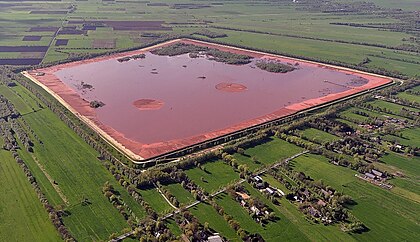Convenience? That one is hard to argue with. But there are still pros and cons.
Consistency? Twice in one day last week I had a person say that we could open 12 of the same wines under cork and have 12 different wines. Bottling is a system. The package is a system. The corks we sell have been through several steps to ensure consistency. And as long as your filler and corker are functioning properly, I don't see an issue. Stay with me here. How often do you find a screw capped wine with shipping, handling, or storage damage to the cap resulting in oxidation? I'll wager that is more likely than finding TCA in one of my cork customers' bottles. The end user still sees inconsistency under a screw cap.
TCA is no longer a compelling reason to continue to poison the atmosphere.
Sensory Detection and Recognition of TCA in Various Matrices
Sponsored by the CQC and Conducted by ETS Laboratories in July 2001 - St. Helena CA Summary : A total group of 33 winemakers and enologists were presented with a rang of wine and cork soak samples spiked with TCA in a range from 1ppt to 32ppt. Results showed a wide range of sensory effectiveness. www.corkqc.com
I would attribute some portion of the consistency argument to variations in fruitiness due to a "ghost level" of TCA and the ways that it can stomp fruit while going unnoticed. This is why the new cork treatment processes for traditional, one- piece natural corks and use of technically advanced microagglomerated corks with maximum detectable TCA levels at 0.05, 0.03ppt (respectively) are needed. And this is what we offer.
Aluminum manufacturing is the core issue.
In a corks vs. screwcaps discussion, we both know and could (even today) argue for either. I have heard it all. How about, "My Mother in Law cannot operate a cork puller"? How about "Here's some box wine".
Not often mentioned, even in a crazy, alternate reality where CO2 wasn't important- Red Mud is the smoking gun for condemnation of aluminum.
Red mud - Wikipedia
en.wikipedia.org And as frightening as red mud is, the atmosphere is still the biggest issue. CO2 from manufacturing aluminum is a pretty big deal. "...According to the International Aluminum Institute (IAI), global PFC emissions in 2014 were equivalent to 34 million metric tonnes of CO2 [8]. Consequently, the average carbon intensity, including PFC emissions, of an aluminium producer aligned with the Paris Pledges in 2014 is (766 + 34) / 126 = 6.34 tonnes of CO2e per tonne of aluminium produced. This is 4.27% higher than the CO2-only benchmark." That is just sad.
Are you wondering how green a cork manufacturer actually is? Amorim Cork is the largest manufacturer. Let's look at them.
Amorim devotes more of their R&D budget towards sustainability than anyone else in the business and has been awarded accordingly.
Corticeira Amorim wins a World Finance Magazine Sustainability Award for the fourth consecutive year - News Detail - Media - News - Corticeira Amorim, world’s biggest cork processing group
Corticeira Amorim won the top prize in the «Wine products industry» category of the World Finance Magazine Sustainability Awards. Distinguished for the fourth year running, the Portuguese company w...
www.amorim.com
Anything else you need to convince you to abandon your screw caps could be retrieved on a Google search for "Amorim Sustainability Certification Award"
For the topic of sustainability, a Life Cycle Analysis by Price Waterhouse Coopers in 2008 has in an interesting perspective. Overview - Sustainability - Corticeira Amorim, world’s biggest cork processing group
Cork lies at the heart of Corticeira Amorims business. The company is committed to ensuring that its business activity has a positive impact on ecosystems, throughout its value chain, with an...
www.amorim.com
As a group, Amorim leads he charge for sustainability. For direct comparison, the Amorim XPUR cork retains 392g of CO2 while a single screwcap is implicated in creating what I can only estimate to be an amount of CO2 in the 400g range.
So how is cork suddenly trustworthy to a screwcap devotee?
"With Naturity and Xpür technologies, Corticeira Amorim is extending non-detectable TCA performance to both natural and technical cork stoppers. The world's greenest and most innovative and efficient anti-TCA technologies are redefining the future of the industry......" read more
The Amazing Neutrocork XPUR
Amorim Cork has brought supercritical fluid technology well into the 21st Century. Making TCA truly a thing of the past, Xpür allows for a robust and even deeper cleansing of cork’s cellular...
www.enotools.com
By now, if you are feeling good about using Naturity or XPUR, here are some fun facts:
Amorim is 150 years old.
The cork forests have been protected by law since the 1400's and sequester just over 4% of of the CO2 emissions of global fossil fuel use a year. This is impressive, since the cork forests are only 1.2% of the 30% of Earth's surface which is land mass.
Naturity and XPUR preserve the wine and align with your goals.
We are direct agents for Amorim and would very much appreciate your business.Reach out to Joe here.



